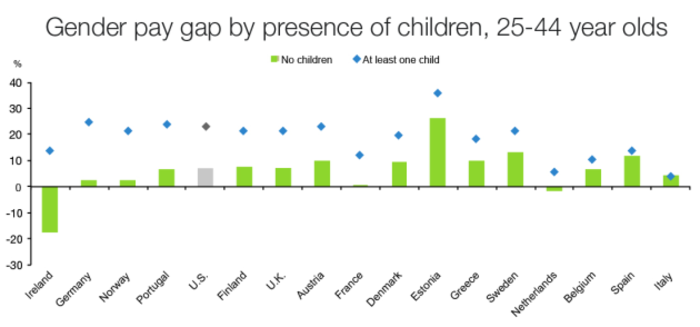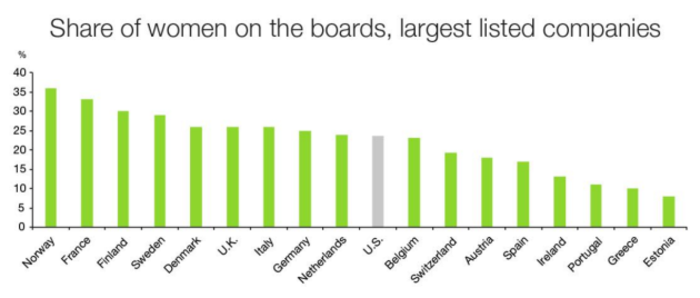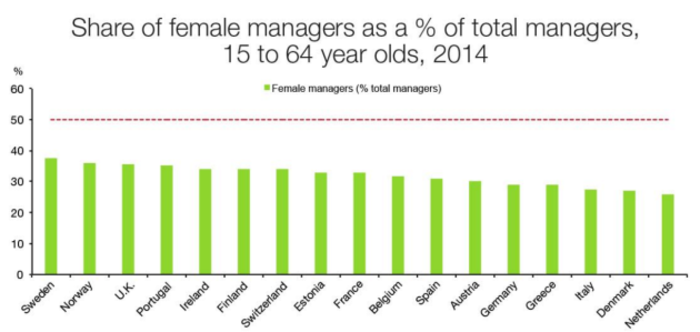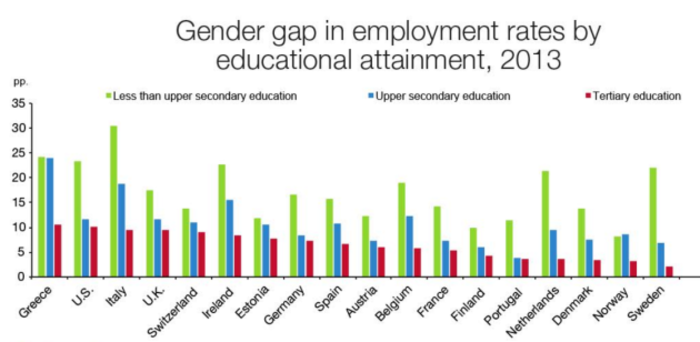The ‘cost of motherhood’ is higher in Ireland than anywhere in western Europe
Working women without children earn more than men – but that all changes for those with kids.
WORKING WOMEN PAY a higher penalty for motherhood in Ireland than anywhere else in western Europe.
Figures compiled by employer-comparison site Glassdoor show that median wages for women with no children are significantly higher than earnings for men in Ireland – one of only two European countries included in its data that showed the same trend.
However mothers with at least one child earned significantly less than male workers, with the pay difference between women aged 25 to 44 with children and those without standing at 31 percentage points.
That was higher than in next-placed Germany, where the pay gap for mothers was 23 points. Italy, Spain and Belgium had the lowest pay differentials for women with children at 3 points or lower.

Click here for a larger version
Ireland also had one of the lowest workforce participation rates for women, relative to their male peers, in the survey, finishing ahead of only Greece and Italy on the measure.
The Republic has consistently maintained the highest fertility rate of any country in the EU, however parents are also subjected to among the highest fees for childcare and early education when compare to wages.
The European Commission has repeatedly highlighted the issue as a “significant barrier” to getting more women into the workforce in Ireland.
Representation in management
When it came to women in senior positions, Ireland’s report card was mixed. The country ranked ahead of only Portugal, Greece and Estonia for female representation at a boardroom level, with about one in 10 directors’ roles here held by women.

Click here for a larger version
However Ireland ranked ahead of many of its peers when it came to female representation at a managerial level. Around one-third of all senior positions in the country were held by women. Norway, at nearly 40%, had the highest proportion.

Click here for a larger version
Education is key
The report also highlighted the extent to which education could help address the widespread levels of gender inequality in the EU workforce.
The gender gap in employment levels was below 10% in Ireland for women who received a university education, however it stood at more than 20% for those who never finished their upper second-level qualifications.

Click here for a larger version
Glassdoor chief economist Andrew Chamberlain said the overall results for Sweden, Norway and Finland showed it was possible to achieve “near gender parity in the workplace”.
“This balance in the labour market can be a lesson for other countries. However, even in Norway the ‘cost of motherhood’ in terms of lower wages for women with children is one of the highest in Europe, illustrating that no country in the world is perfect.”





